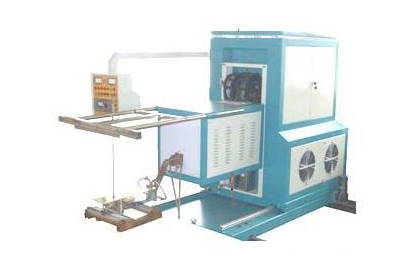- 28
- Sep
Process analysis of hand reamer using high-frequency quenching equipment for heat treatment
Process analysis of hand reamer using fitaovana famonoana olona matetika for heat treatment
Hand reamers use high-frequency quenching equipment for heat treatment. There are many factors that affect the heat treatment effect, such as heat treatment process and raw materials. Among these factors, the heat treatment process has the greatest influence. Therefore, it is very necessary to master the heat treatment process of hand reamer.
1. Technical requirements of hand reamer:
The commonly used material for hand reamer is 9SiCr steel.
Hardness: 62-64HRC for φ3-8; 63-65HRC for φ8.
Handle hardness: 30-45HRC.
The amount of bending distortion of the hand reamer is determined to be 0.15-0.3mm according to the diameter and length.
2. Fomba fitsaboana hafanana
The heat treatment process route is: preheating, heating, cooling, straightening, tempering, cleaning, hardness inspection, blackening, and appearance inspection. The heating process is mostly carried out by high-frequency quenching equipment, among which the preheating temperature is 600-650°C, the heating temperature is 850-870°C, and the tempering temperature is 160°C.
The hand reamer can be quenched as a whole and then annealed the shank. The annealing temperature is 600°C, and then quenched into nitrate salt at 150-180°C to cool for more than 30s.
3. Process description
(1) In order to reduce the bending of the reamer after quenching, stress relief annealing can be used before quenching.
(2) In order to reduce the distortion of the reamer with a diameter of less than 13mm, the lower limit of the quenching temperature can be taken. For the hinge force with a diameter greater than 13mm, in order to improve its hardenability, the upper limit quenching temperature and hot oil cooling can be used.

